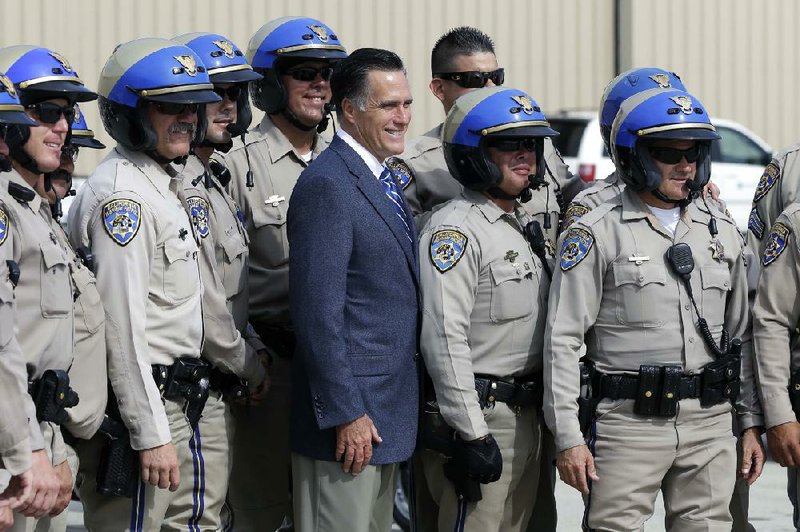WASHINGTON — Mitt Romney seems to be both candidate and campaign CEO these days, and some Republicans say he’s trying to do too much.
He reviews TV ads and polling data on an iPad. He writes many of his speeches. He’s often talking like a consultant.
One instance of that gave him trouble last week, when a secretly taped speech to donors was posted online just as polls show him narrowly trailing President Barack Obama.
“Here are 47 percent of the people who will vote for the president no matter what. All right, there are 47 percent who are with him, who are dependent upon government, who believe that they are victims, who believe that government has a responsibility to care for them,” Romney said at the May fundraiser. “And so my job is not to worry about those people - I’ll never convince them that they should take personal responsibility and care for their lives.”
RELATED ARTICLES
http://www.arkansas…">White House quiet as focus shifts to campaignhttp://www.arkansas…">Obama in Wisconsin to counter Ryan, ads
Democrats accused Romney of writing off half of the country. The former Massachusetts governor insisted he was just talking about the polls and trying to make the point that 47 percent of people probably will support the Democratic incumbent, no matter what their reasons.
Some Republicans grimaced.
They say Romney’s explanation was evidence of a big problem with his campaign: The nominee simply is taking on too many duties. Romney’s job is to inspire voters, they say, and not manage every detail of his campaign.
“He was talking about the electorate as if it were a ledger sheet,” said Alex Castellanos, a Republican strategist who worked closely with Romney on his 2008 presidential campaign. “It diminishes him.”
Romney spokesman Kevin Madden defended Romney’s approach.
“It’s his campaign,” Madden said. “On a campaign like this, everything is derived from the candidate’s vision, and the reason they are offering their leadership to the American people.”
During three decades in private business, Romney made big money turning around struggling companies with hands-on leadership and a laserlike focus on the smallest details.
Romney insists all is well with his campaign despite several rocky weeks.
“It doesn’t need a turnaround. We’ve got a campaign which is tied with an incumbent president to the United States,” Romney told CBS’ 60 Minutes for an interview set to air today.
Like most presidential candidates, Romney keeps a close team of aides and advisers. They describe campaign decision-making at the highest levels as collaborative discussion where advisers have the chance to offer opinions. Romney does delegate responsibility. For example, he put longtime aide Beth Myers in charge of the search for a running mate.
But he also is directly involved with many parts of the campaign.
He likes to watch the TV ads before they go on the air. He reviewed Rep. Paul Ryan’s financial information before selecting him for the No. 2 spot. He’s rarely separated from chief strategist Stuart Stevens. They often spend hours conversing and poking at an iPad on the campaign’s charter plane. If Romney’s not with Stevens, he’s often calling him.
Peggy Noonan, a conservative columnist and former speechwriter for President Ronald Reagan, last week wrote in her column: “The candidate can’t run the show. He can’t be the CEO of the campaign and be the candidate.”
“The candidate is out there every day standing for things, fighting for a hearing, trying to get the American people to listen, agree and follow,” Noonan wrote Friday. “The candidate cannot oversee strategy, statements, speech writing, ads.He shouldn’t be debating what statistic to put on slide 4 of the PowerPoint presentation.”
Romney publicly shrugs off such talk. He has embraced his CEO skills, saying he would use a hands-on model to govern the country and follow the example set by his father, George Romney, who served as governor of Michigan.
Former business colleagues say that’s how Romney has operated his whole career.
As CEO of Bain Capital, Romney paid careful attention to the companies he invested in and often possessed a deep knowledge of the numeric requirements for success.
Information for this article was contributed by Phillip Elliott of The Associated Press.
Front Section, Pages 14 on 09/23/2012


